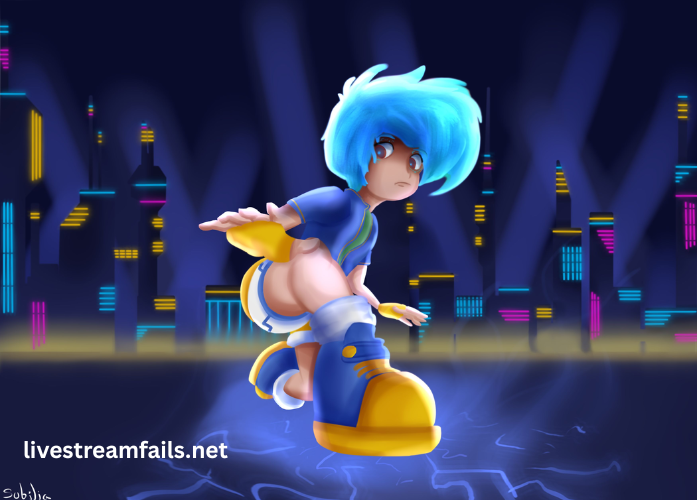Innovation is the key to progress, and in today’s rapidly evolving world, emerging technologies play a pivotal role in transforming industries, reshaping businesses, and enhancing human life. From artificial intelligence (AI) and blockchain to quantum computing and renewable energy solutions, new technological advancements are driving major shifts across various sectors. This article explores the emerging technologies that are shaping the future of innovation and how they are influencing different aspects of society.
The Role of Emerging Technologies in Driving Innovation
Transforming Industries Across the Globe
Emerging technologies have become the catalyst for revolutionizing industries by enabling faster, smarter, and more efficient operations. Whether it’s healthcare, finance, manufacturing, or education, new tech is offering innovative solutions to longstanding challenges.
For instance, the integration of AI and machine learning (ML) in healthcare has enhanced diagnostic capabilities and personalized treatments. Similarly, blockchain is transforming the way financial transactions are handled by providing greater transparency, security, and efficiency.
As industries adopt and integrate emerging technologies, they are not only enhancing their competitiveness but also delivering more value to consumers, stakeholders, and society at large.
Facilitating Collaboration and Connectivity
One of the most profound impacts of emerging technologies is their ability to facilitate collaboration and connectivity across the globe. The rise of cloud computing, the Internet of Things (IoT), and 5G networks has made it easier for businesses, governments, and individuals to connect in real-time, irrespective of their physical location.
These advancements are accelerating innovation by breaking down traditional communication barriers, enabling faster decision-making processes, and improving resource management. This connected ecosystem is also fostering collaboration among diverse sectors, resulting in more comprehensive and integrated solutions to complex problems.
Key Emerging Technologies Shaping the Future of Innovation
Artificial Intelligence (AI) and Machine Learning (ML)
The Power of Data-Driven Insights
AI and ML are two of the most influential technologies currently shaping the future. AI systems have the ability to simulate human-like intelligence, while ML enables machines to learn from data and improve over time without human intervention. Together, they are transforming industries by automating tasks, enhancing decision-making, and providing deeper insights into data.
In sectors such as healthcare, AI is being used for predictive diagnostics, drug discovery, and personalized medicine. In finance, AI-driven algorithms help detect fraud and optimize trading strategies. Additionally, businesses are leveraging AI to streamline customer service operations, enhance user experiences, and improve supply chain management.
Automation and the Future of Work
One of the most significant impacts of AI and ML is on the workforce. Automation driven by AI is transforming traditional job roles, leading to new opportunities but also presenting challenges in terms of job displacement. However, AI is expected to create a new class of jobs that require specialized skills in programming, data analysis, and AI system management.
To keep pace with these changes, it is essential for educational institutions and organizations to invest in reskilling and upskilling programs, ensuring that workers are prepared for the future of work.
Blockchain Technology
Revolutionizing Data Security and Transparency
Blockchain technology, primarily known for being the backbone of cryptocurrencies, is one of the most groundbreaking innovations of the 21st century. Its decentralized, immutable, and transparent nature makes it ideal for enhancing data security and eliminating fraud. Blockchain ensures that information is securely stored and verified across multiple nodes, reducing the risk of tampering or unauthorized access.
Beyond cryptocurrencies, blockchain is being explored for applications in supply chain management, voting systems, intellectual property protection, and more. For example, in the supply chain industry, blockchain can track goods from their origin to their final destination, ensuring authenticity and reducing counterfeiting.
Smart Contracts and Decentralized Finance (DeFi)
Blockchain is also ushering in a new era of financial innovation through smart contracts and decentralized finance (DeFi). Smart contracts are self-executing contracts with predefined rules written directly into code, reducing the need for intermediaries and ensuring faster and more secure transactions.
DeFi, on the other hand, is leveraging blockchain to create decentralized financial systems that operate outside traditional banking infrastructures. This allows individuals and businesses to access lending, borrowing, and trading services without relying on centralized institutions.
Quantum Computing
Breaking Through Computational Limits
Quantum computing is another emerging technology that promises to revolutionize the future of innovation. Unlike classical computers, which process information in binary (0s and 1s), quantum computers use quantum bits (qubits) that can exist in multiple states simultaneously. This allows quantum computers to perform complex calculations at speeds far beyond the capabilities of traditional machines.
Quantum computing has the potential to solve problems that are currently intractable for classical computers, such as simulating molecular structures for drug discovery, optimizing supply chain logistics, and enhancing machine learning models.
Potential Applications Across Multiple Industries
Though quantum computing is still in its infancy, its applications are vast and varied. In healthcare, it could lead to breakthroughs in personalized medicine by enabling faster and more accurate analysis of genetic data. In finance, it could optimize risk management and enhance trading strategies by processing large datasets in real time.
The development of quantum computing will also drive advances in cybersecurity. Quantum encryption techniques can provide unbreakable security protocols, offering protection against potential cyber threats in the future.
Renewable Energy Technologies
The Need for Sustainable Solutions
The demand for clean and sustainable energy solutions has never been more urgent, and emerging renewable energy technologies are playing a significant role in shaping the future of innovation. Solar, wind, and hydropower are already being widely adopted, but recent advancements in energy storage, grid management, and alternative energy sources are further accelerating the transition to a low-carbon economy.
Energy Storage and Grid Integration
One of the biggest challenges in renewable energy is the intermittent nature of sources like solar and wind. Emerging technologies in energy storage, such as advanced batteries and hydrogen fuel cells, are making it possible to store energy for use when demand is high or when production is low.
Additionally, smart grids and decentralized energy systems are improving the efficiency of energy distribution and consumption. These innovations not only help reduce waste but also contribute to the overall sustainability of energy networks.
The Role of AI in Energy Efficiency
AI and machine learning are also playing a crucial role in improving energy efficiency. By analyzing consumption patterns and predicting energy demand, AI can optimize energy distribution, reduce waste, and lower costs. Moreover, AI can enable the development of more efficient renewable energy technologies by helping engineers design better solar panels, wind turbines, and other energy systems.
Autonomous Vehicles
Redefining Transportation and Mobility
Autonomous vehicles, also known as self-driving cars, are poised to revolutionize the transportation industry. Powered by AI, sensors, and sophisticated algorithms, these vehicles have the potential to reduce traffic accidents, optimize traffic flow, and reduce carbon emissions. With companies like Tesla, Waymo, and Uber investing heavily in autonomous vehicle technology, it is only a matter of time before we see a mass adoption of self-driving cars.
Autonomous vehicles could transform urban planning by reducing the need for parking spaces and allowing for more efficient use of land. Additionally, these vehicles could enhance mobility for elderly and disabled individuals, providing greater independence and access to transportation.
Challenges and Considerations for the Future
While emerging technologies hold immense promise, there are also several challenges and ethical considerations that must be addressed. As these technologies continue to evolve, there is a need for strong regulatory frameworks, ethical guidelines, and global cooperation to ensure their responsible and equitable use.
Data Privacy and Security Concerns
As more data is generated and shared across networks, concerns about privacy and security are growing. AI, blockchain, and other technologies rely heavily on data collection, but it is critical to ensure that this data is protected and that individuals’ privacy rights are respected.
The Digital Divide
Another challenge is the digital divide. While emerging technologies offer numerous benefits, they may also exacerbate inequalities between regions, countries, and socioeconomic groups. Access to advanced technologies such as AI, blockchain, and quantum computing is still limited in many parts of the world, creating disparities in opportunities and outcomes.
Ethical and Social Implications
The rapid pace of technological advancement raises important ethical questions, particularly when it comes to issues like job displacement, surveillance, and decision-making by AI systems. It is essential for policymakers, businesses, and society at large to work together to develop ethical frameworks that prioritize fairness, transparency, and accountability.
Conclusion
Emerging technologies are at the forefront of shaping the future of innovation. From AI and blockchain to quantum computing and renewable energy solutions, these advancements are unlocking new possibilities and transforming industries across the globe. While the potential benefits are immense, it is equally important to address the challenges and ethical concerns that come with these technologies.
As we continue to embrace innovation, collaboration, and responsible governance will be key to ensuring that emerging technologies are used for the greater good, driving sustainable progress for generations to come.




